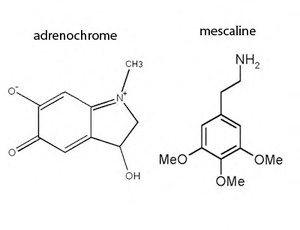
You Are What You Eat
There are difficulties when comparing different systems of medicine. For example, westernized medicine tends to look at things in terms of pathology and not particularly in terms of wellness. Other systems of medicine, such as traditional Chinese Medicine or Ayurveda tend to take a more proactive approach and could be considered systems of wellness and not merely systems in medicine. In the previous article it is suggested that these systems are very difficult to compare.
Western medical science relies heavily on prescription medications. These medications are often synthesized compounds that effect specific symptoms. Other systems of medicine also have a molecular basis. So there is a reasonable standard that we can use to compare these systems. These systems can be compared based on two factors, their organic chemical effect and the outcomes that they produce. For instance, if a prescription medication has side effects that are worse than the disease that they are meant to treat, they're more aptly to be described as a poison. On the other hand, in many cases once diseases have developed, these medications are highly effective at managing the symptoms if not the disease. In some cases chronic diseases such as mental illnesses may require medication for the remainder of the patient's life if their illness is severe enough.
Alternative systems tend to take a proactive approach to treating disease. These systems focus on prevention of disease and the mediation of the basic causes of disease. They tend to use whole foods nutrients and plant products to affect wellness. The molecular structure of these substances is often much more complex and complete than that specifically engineered prescription medication that we are used to. This molecular basis of analysis helps us to compare the systems of medicine.
During the 1930s a multidisciplined scientist, Linus Pauling, began to look at the molecular nature of various diseases. He found often that basic nutrients in the right combinations and dosages had a better chance of prevention of disease or at least remission of symptoms. There is a good body of research and documentation about use of these substances for people with psychiatric conditions.
In the Canadian province of Saskatchewan there was a long-term research program conducted based on the findings of Dr. Pauling, PhD. This research has become the basis of what is now known as the adrenochrome hypothesis. This hypothesis states that hydrogen peroxide in the presence of ferritin, or iron in the blood, contributes to the oxidization of the neurotransmitter adrenaline. Once oxidized the molecular structure of adrenochrome is very similar to the structure of mescaline. In patients with high levels of adrenochrome disassociative experiences and diseases such as schizophrenia are prevalent.
This hypothesis states that through the use of orthomolecular medicine, or the use of basic nutrients in the right dosages and application, can cure or control this disease. Further research along this line suggests that other psychological conditions might be significantly impacted by the application of basic nutrients.
In patients with schizophrenic diseases a variety of B vitamins and whole C vitamins has shown to have a significant impact on the disease. The vitamins that are involved are niacin, B6, B12, and vitamin C. Significant dosages of these basic nutrients helped to reduce the oxidizing effect on adrenaline and therefore produced significantly less adrenochrome.
Traditionally Western medicine does give a nod in the direction of the use of nutrients. It is said to be an important part of health. Often, because of the influence of the pharmaceutical industry, the primary use of nutrients as treatment for disease is considered quackery.
The evidence seens to show that patients reported less disturbing symptoms and many eventually were freed from symptoms entirely. For people like Dr. Abraham Hoffer, MD, Phd and his associates the evidence suggests that this form of treatment may contribute to a better quality of life for patients with schizophrenia. Dr. Hoffer in his research and interviews talks about the use of both synthetic pharmaceuticals and nutrients over a period of time to affect these changes. He does not advocate the immediate disposal of pharmaceutical medications in place of vitamin therapy. It would seem that he feels that all healing is a process.
In the documentary film, Feed Your Head, the adrenochrome hypothesis is discussed in great detail. Many patients in the film such as the actress, Margot Kidder, assembled together to thank these doctors for their work. Much of the material for this article comes from this movie. Another significant resource for the development of this article was derived from the information listed on the orthomolecular.org website.
For further information about the promise and practice of orthomolecular medicine please review both of these resources. While there are not many practitioners of orthomolecular medicine, they can be found. Of course, not every treatment is right for every patient. But for those who use orthomolecular medicine to prevent and treat disease the use of basic nutrients has changed their lives.
Orthomolecular medicine contributes to health on a much wider basis than just schizophrenic disease. Since the 1800s scientists have been working to understand a sentiment that computer engineers have known for a long time, if you put garbage into a system you get garbage out of the system. In the case of orthomolecular medicine it is fair to say you are what you eat, so if you have a mental illness, be sure to feed your head.
Very interesting read. The interplay between nutrients and mental health never ceases to amaze me.
Downvoting a post can decrease pending rewards and make it less visible. Common reasons:
Submit
Me too. There is a lot to mental health recovery and it is possible. I struggled for many years. Self compassion was the gateway for me to find some peace. I have learned a lot do to my struggles and value it greatly.
Downvoting a post can decrease pending rewards and make it less visible. Common reasons:
Submit